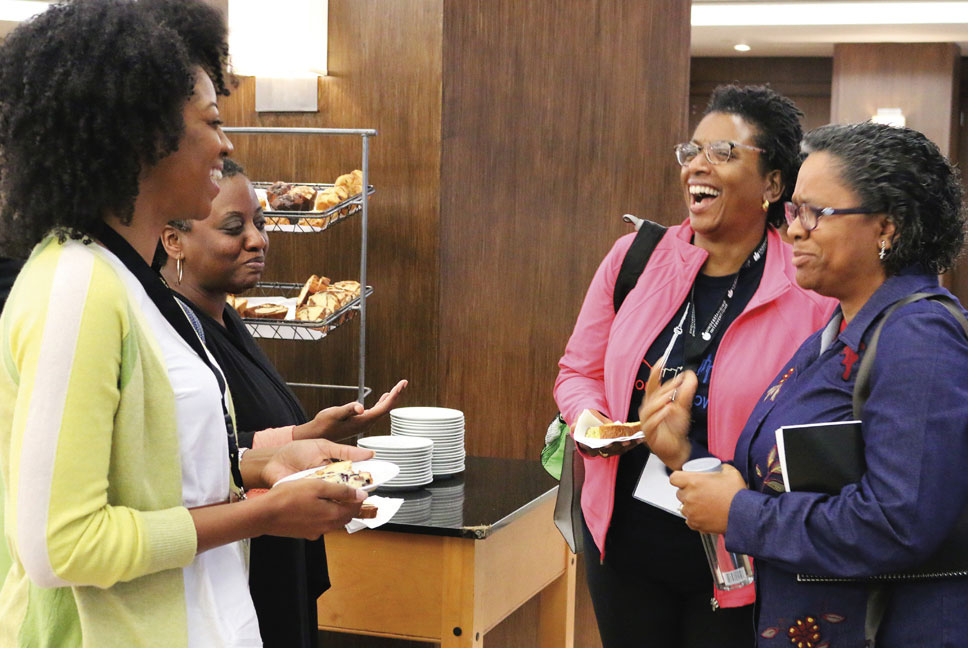
9th Conference on Understanding Interventions that Broaden Participation in Science Careers
March 3rd – 5th
San Antonio, Texas
A Brief History of the Conference
In 2007, the National Institute for General Medical Sciences funded the National Research Council to organize a workshop on “Understanding Interventions That Encourage Minorities to Pursue Research Careers.” The conference ignited a peer community that has become a recognizable brand. This community of training program directors in various disciplines, social and behavioral science researchers, and project/program evaluators was established to facilitate dissemination and exchange of hypothesis-based research on interventions and initiatives that broaden participation in science and engineering science careers. The eight previous UI Conferences were made possible by support from the Howard Hughes Medical Institute (HHMI), the Alfred P. Sloan Foundation, and Educational Testing Service (ETS). Each conference has been codified in a series of thematically-organized reports (available on this website), and spawned a range of resources for STEM practitioners in various settings, with different needs and aspirations. The conference itself embodies one-stop shopping for the interventions veteran and neophyte alike. Welcome!
The Current Conference: A Diversity of Formats
The conference is designed to create a dialogue among behavioral/social science and education researchers, evaluators, and faculty in STEM (science, technology, engineering, and mathematics) fields who participate in intervention programs. The reciprocal translation of research into practice and practice fueling research is an ongoing conference objective. Graduate students, postdocs, and new faculty in these fields are strongly encouraged to attend (see Travel Grants).
Workshops and symposia are organized by tracks of interest, targeting the specific needs of community members. All formats seek to communicate effective strategies from successful STEM intervention programs, present results from empirical research studies, and synthesize the translation of research findings into practice on STEM learning, undergraduate research, graduate training, and career development.
Plenary sessions aim to cross disciplines, interests, and work contexts in showcasing for the community assembled at meals and receptions throughout the conference the big issues in STEM education and career development.
Workshops of 1.5 or 3 hours provide Hands-on interactive sessions or Focused didactic presentations on a well-circumscribed topic. Benefits to attendees are essential, including take-away materials.
Symposia feature 2-3 person panel presentations, each of 20-minute duration, followed by Q&A. These Traditional symposia are organized thematically. A variation on this approach, debuted last year, is the Deeper Dive. This is a 15-minute overview raising questions for discussion followed by each speaker engaging in simultaneous 30-minute roundtable interactions with interested audience members.
Posters display the range of expertise and interest in the STEM interventions community, highlighting works in progress, especially learning from programs and other research-based experiments.




